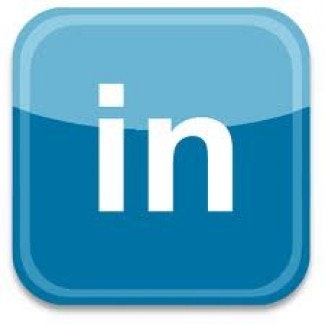Want to find a winning tech stock? Forbes’ America’s Fastest Growing Tech Companies is a good place to start.
Forbes’ list — which was released on June 5 and will appear in the magazine’s June 24 issue — is in its 11th year. According to Forbes, “Since 2003 a market-cap-weighted basket of each year’s Fast Tech 25 has beaten the Nasdaq, often by a wide margin, except in 2005, 2006 and this past year.”
The inclusion criteria:
Market cap of at least $500 million
Annual revenue of at least $150 million
Sales growth of at least 10% for each of the past three fiscal years and over the past twelve months
Estimated earnings growth more than 10% over the next three to five years
Forbes ranks its list by average 3-year sales growth. Its top five are LinkedIn Corp (NYSE:LNKD), Facebook Inc (NASDAQ:FB), Apple Inc. (NASDAQ:AAPL), 3D Systems Corporation (NYSE:DDD), and IPG Photonics Corporation (NASDAQ:IPGP). I’m going to rank another way.
Top 5 by estimated earnings growth
Earnings growth — cash flow from earnings, actually – is what drives a stock price up over the long-term. So, let’s sort Forbes’ list by estimated EPS growth.
| Rank | Company | Business | Est. EPS Growth | 12 Mo. Sales Growth | 3-Yr Avg Sales Growth |
|---|---|---|---|---|---|
| 1 | Social Networking | 51% | 80% | 102% | |
| 2 | 3D Systems | 3D Printers | 30% | 45% | 46% |
| 3 | Equinix | Data Center Services | 29% | 17% | 29% |
| 4 | athenahealth | Cloud-based Healthcare Services | 27% | 29% | 31% |
| 5 | IPG Photonics | Lasers/Amplifiers | 26% | 17% | 46% |
Source: Forbes
Valuations
Valuation matters. So, let’s take a look at PE’s and 5-year PEG’s for the companies on my list. The companies are listed by estimated EPS growth.
| Rank | Company | Est. EPS Growth | PE (ttm) | PE (frw) | 5-Yr PEG |
|---|---|---|---|---|---|
| 1 | 51% | 701 | 86 | 2.1 | |
| 2 | 3D Systems | 30% | 104 | 35.8 | 2.2 |
| 3 | Equinix | 29% | 64 | 40.5 | 2.9 |
| 4 | athenahealth | 27% | 202 | 60.4 | 3.0 |
| 5 | IPG Photonics | 26% | 22 | 17.3 | 0.8 |
Source: Yahoo! Finance; data to June 19
Stocks to consider
Here’s the rationale for honing in on the three I’m highlighting:
LinkedIn – It has the top 1- and 3-year revenue growths, and the top 3-5 year estimated EPS growth. It provides services that are needed in good and bad economic times.
3D Systems – It ranks high on both 1- and 3-year revenue growth; 1-year revenue growth is roughly the same as the 3-year, and its estimated EPS growth is the second highest. It’s involved in an emerging and disruptive technology.
IPG Photonics – It ranks high on the estimated EPS growth list and is reasonably valued. I view the medical niche favorably.
This isn’t to say the others on Forbes’ list — notably, tech powerhouse Google Inc (NASDAQ:GOOG) — aren’t worth a look.
LinkedIn Corp (NYSE:LNKD) is a professional networking site that provides a valuable resource in all economic climates. There’s more unemployment and job hunting in bad times, and more job-hopping and employers hiring in good times.
LinkedIn Corp (NYSE:LNKD) is often compared to Facebook Inc (NASDAQ:FB) and other sites used for social reasons. It’s quite a different beast, in my opinion. Firstly, its revenue is not ad-driven, as is Facebook Inc (NASDAQ:FB)’s–only 23% of LinkedIn Corp (NYSE:LNKD)’s Q1 2013 revenue came from ads. This is a service people (heavily employers, as “hiring solutions” accounts for 57% of revenue) are willing to pay for. Secondly, it’s less subject to fickleness, as there’s no “cool” factor needed. Thirdly, there are no even “kinda” substitutes.
There’s no doubt the stock is pricey. The trailing PE is gargantuan — but I don’t think investors should concern themselves much with backward-looking metrics. Yes, the forward-looking valuation measures are also high. However, this is almost always going to be the case for growth stocks with considerable future earnings’ potential.
Foolish writers Pam Peerce-Landers and John Reeves just released a wonderfully thorough and easy-to-follow “The Bull vs. Bear Case for LinkedIn” slideshow. I encourage existing and potential investors to take a look. One comment: while I agree the U.S. market is likely nearly saturated, there are other developed markets that are not.





